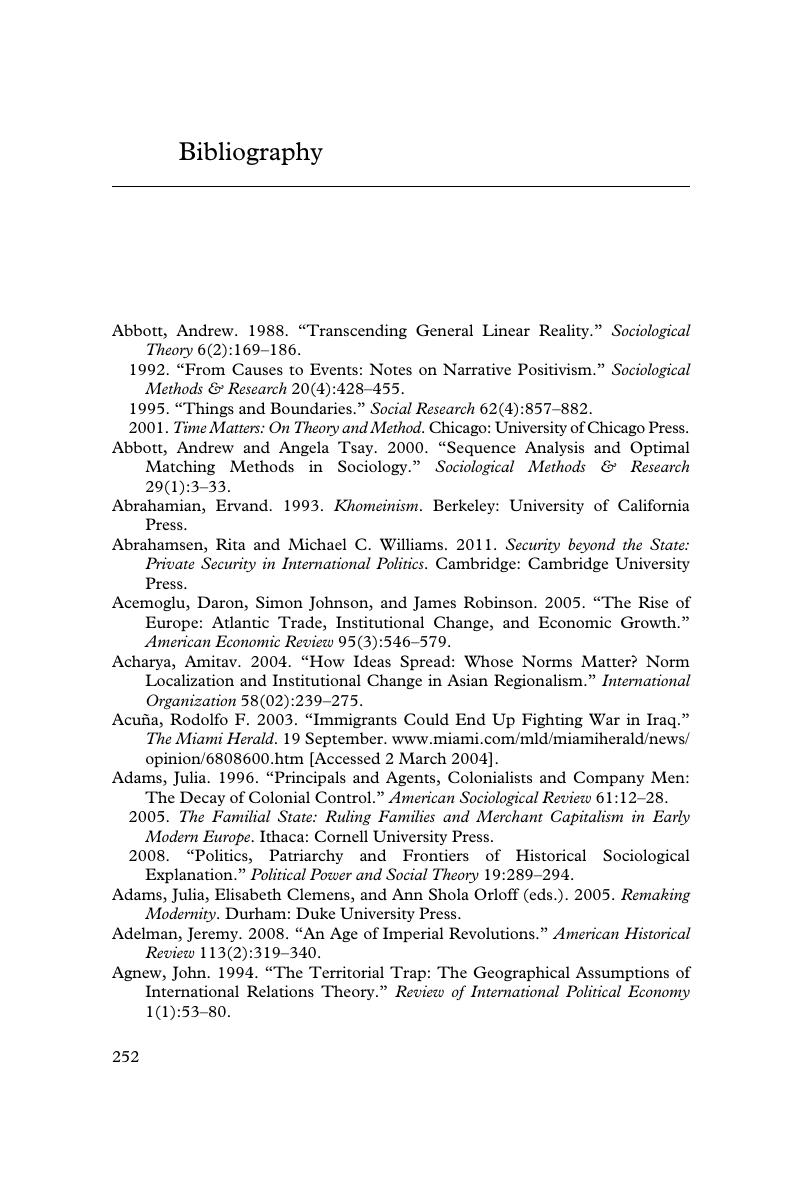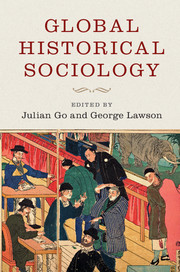Book contents
- Global Historical Sociology
- Global Historical Sociology
- Copyright page
- Contents
- Contributors
- Acknowledgments
- Introduction: For a Global Historical Sociology
- Part I States, War, and Revolution
- Part II Empire, Race, and Sexuality
- Part III Capitalism and Political Economy
- Conclusion: Global Historical Sociology and Transnational History – History and Theory Against Eurocentrism
- Bibliography
- Index
- References
Bibliography
Published online by Cambridge University Press: 29 September 2017
- Global Historical Sociology
- Global Historical Sociology
- Copyright page
- Contents
- Contributors
- Acknowledgments
- Introduction: For a Global Historical Sociology
- Part I States, War, and Revolution
- Part II Empire, Race, and Sexuality
- Part III Capitalism and Political Economy
- Conclusion: Global Historical Sociology and Transnational History – History and Theory Against Eurocentrism
- Bibliography
- Index
- References
Summary

- Type
- Chapter
- Information
- Global Historical Sociology , pp. 241 - 251Publisher: Cambridge University PressPrint publication year: 2017



